The Secret Life of a Farmer
Buying local is no longer a niche choice or a wellness fad — it’s a lifestyle that’s hit the mainstream. As harvest time plows nearer, City Life Magazine switches the focus from the food to its growers. We met with three farmers from Vaughan and beyond who welcomed us into their worlds, demystifying their processes and politics, their struggles and successes. Here, get to know the people who fill your table with a rainbow of fruits, veggies and other local goods.
Every day, from May to November, Peter Russo’s alarm goes off at 2 a.m. He trudges out to the field where he mounts his tractor and spends the next four hours tending to his crops of zucchini flowers, peppers, tomatoes, eggplants and pumpkins. His workday won’t end until the sun goes down. And he adores it.
“I love what I do,” says Peter. “I love being in my tractor. I turn on the air conditioning, blast the music and I’m in la-la land out there. There’s no stress.”
Of course, the stress is waiting for him as soon as he hops out of the vehicle, but that’s a price he’s willing to pay to live out his passion. Peter is the son of Maria Russo, the matriarch of Russo Farms in Vaughan, which she founded 35 years ago as an excuse to get out of the house. But the produce was an instant hit among the locals, and a few years later she expanded, prompting Peter to shut down his Toronto-based clothing store and join his mother’s blossoming farm.
Today, Russo Farms is one of the few remaining in Vaughan. It clung on as the city rocketed through years of development that wiped out most of its farmland, including the locally famous Southbrook Farms (which moved to Niagara-on-the-Lake and became Southbrook Vineyards). A few years back, Russo Farms’ original location at the northeast corner of Weston Road and Major Mackenzie Drive succumbed to the aggressive monetary offers of developers, leaving the farm with just one spot around the corner from their old one. But the Russos don’t mind. They’re busier than ever before.
“We are at everybody’s table in Vaughan,” says Peter’s wife, Sandra, who opens their small fruit and veggie shop every morning at 7:30, often greeting the lineup that’s formed already.
While the farm has always been an integral part of the Vaughan community, the Russos say their popularity has boomed with the rise of buying local. No longer just a niche fad for the wellness-conscious, it’s become a common practice for many folks in Vaughan and beyond, prompting more and more people to crowd the weekly farmer’s markets and in-farm stores.
And what inspired the shift? There’s the growing desire to support local businesses and keep the economy flowing nicely. And lately people crave foods that are wholesome not only in terms of vitamin content, but also in the way they are grown — lovingly, and just a few kilometres from home. Plus, the hands-on grit of the pick-your-own trend has given GTA-ers the perfect method for reconnecting with nature and their community, which just about everyone thirsts for in this concrete, digital age.
you have to go on faith because you depend on nature, you work like crazy and it could all be destroyed in an instant by a hailstorm, a drought, a flood
– Sue Feddema, Round the Bend Farm
As the “local” trend hits the mainstream, people are starting to look past the food and to the farmers that grow them. Who are these people, and what are their stories? Most haven’t set foot on a farm since their elementary school tours, and many adults aren’t even aware of what’s in season, let alone the work that goes into crafting a tomato, a cherry or an apple.
Pam Rolph-Romeril, owner of Pine Farms Orchard, has her hands full — and not just with the Honeycrisps, McIntoshes and Cortlands that she grows. Nestled in the rolling hills of King City, this 16-acre orchard was founded in the late 1940s by Pam’s grandfather, Ernie Rolph, who dedicated his retirement to pursuing his passion for gardening. Over 70 years later, the apple trees planted by Ernie are still thriving.
“We get a lot of return customers, families who have made a tradition out of coming to pick their own apples. People bring their kids, their grandkids, and it goes on for years,” says Pam. “But there are also lots of new people moving to this area, and I find these newcomers really, really want to buy local, which is fabulous.”
But, Pam adds, a lot of people interested in buying local aren’t so interested in the price tag, which tends to be slightly more than what’s found at the grocery store.
For anyone who questions the value of local food, touring Round the Bend Farm in King City is an eye-opening experience. Sue Feddema walks up and down her rows of cabbage, carrots and celery with the air of a humble queen, distraught by the drought that’s plagued her this summer but as optimistic as it’s possible to be. This is the driest season she and her husband Brian have experienced since buying the farm 30 years ago, a problem that only further complicates the already delicate craft of working the soil.
“You have to go on faith because you depend on nature, you work like crazy and it could all be destroyed in an instant by a hailstorm, a drought, a flood,” says Sue. “Some people work in an office. They go to their job and get paid every day. We spend every day in the fields, we pay all our expenses and pray there’s a harvest in 60 to 90 days.”
This year, her husband Brian and their son have worked 16 to 18 hours each day, irrigating the crops in an attempt to keep them watered enough to yield. They know what they’re doing and are taking all the necessary measures to ensure they reap as much as possible, but even then, they’re expecting a significantly smaller harvest in the fall.
It’s for reasons like this that shopping local needs to get even bigger than it already is. While the new generation of grocery shoppers has initiated a hopeful trend, we still have a long way to go if local farmers are to continue thriving into the century. Even Peter theorizes that Canadian farms will soon cease to exist altogether, eventually being phased out by greenhouses and international importing.
“Every day, over 300 acres of farmland in Ontario are being turned into houses,” says Sue. “If you don’t want to buy American or buy overseas, you need to support local.”
Even in the midst of local shopping’s rise, farmers are gearing up to combat its potential decline by thinking outside the box — in fact, Round the Bend is thinking inside the bins. Three years ago, Sue and Brian started their 22-week Community Supported Agriculture (CSA) program where locals sign up to receive weekly bins filled with farm-fresh treats and recipes. It’s concepts like these that are keeping farms current and only further ingraining the relationship between farm and table.
Pine Farms Orchard is another testament to the versatility of farming, and to the possibility that with a little imagination and a lot of elbow grease, farms really do have a chance at surviving — and thriving — society’s evolution. For generations, folks from King City and beyond have flocked to Pine Farms to pick their own apples in the fall, but since Pam took the helm of her grandfather’s legacy 20 years ago, the property has evolved into so much more than an orchard. While the apples are still the bread and butter of Pam’s business, she’s transformed the property’s decades-old apple cooling house into a quaint café-bakery and farm shop. In 2000, she built a small art gallery space next to the orchard where artists hailing from Toronto to Florence have showcased their work. And having recently brought a professional event planner on board, Pam plans to amp up the wedding hype that’s already surrounding her orchard. It’s the colourful, never-a-dull-moment sort of lifestyle that seems to follow every farmer.
“What I love most about my job is that it’s seasonal, so it never gets boring — ever,” Pam says with a laugh. She savours the springtime, when she and her team spend their days pruning the fields, uplifted by a sense of camaraderie. Then she loves the summertime, when her café porch is crowded with coffee sippers by day, and by night the locals flock to sunset yoga sessions under her twinkling lights. “Every season brings something different and new and refreshing, and yet our roots are always the same. We will always be the orchard that my grandfather founded.”
So, suspended between the past and the future of their industry, farmers from Vaughan and beyond are learning to adapt while staying true to their roots. Modern farms — the ones that are left — are taking advantage of the rise of shopping local, combining each farm’s history with new innovations to accommodate the next generation of consumers.
“One of our customers said it best,” says Sue. “She told me once, ‘I picked my dentist. I have a good dentist. I know my doctor. I have a good doctor. And now I know my farmer. I have a good farmer.’”
Pam seconds that, urging that it’s important for Vaughan citizens to get to know their local farmers and tap into their specialties. “The grocery stores do their best to provide a convenience, but going to an actual farm is a whole experience,” she says. “Go to your mushroom farmer. Go to your garlic grower. Buy in small quantities. And always ask questions.”
If you don’t have an afternoon to spend trekking to the farm at the edge of town, there’s always your local farmer’s market — although many smaller operations are unable to participate in those, since they have too few staff (as is the case with these three farms). And if you find yourself in the grocery store but want to take home something local, ask which produce was purchased at the Ontario Food Terminal. These are the fruits, veggies and other products that were supplied by local farmers.
It’s not just the freshness of local fruit, veggies and meat that’s bringing more and more Canadians back to the tradition of sourcing their ingredients from their town’s farmers.
There’s also something irresistible about the chance to get your hands a bit dirty, about swapping stories with the growers themselves as they help you pick out the juiciest tomatoes of the bunch. But while the trend is on the rise, many of us still have yet to discover the secret lives of farmers — which brighten our palates as much as they do our spirits.
“It’s a hard, hard job. But the people that come in here and the relationships that we’ve built, that’s what we’ll miss if we ever have to say goodbye,” says Sandra. “And more than anything, the memories our children have grown up with — those are what make everything worthwhile.”
roundthebendfarm.com
pinefarmsorchard.com
Russo Farms: 905-832-9955
PHOTOGRAPHY BY CARLOS ARTURO PINTO
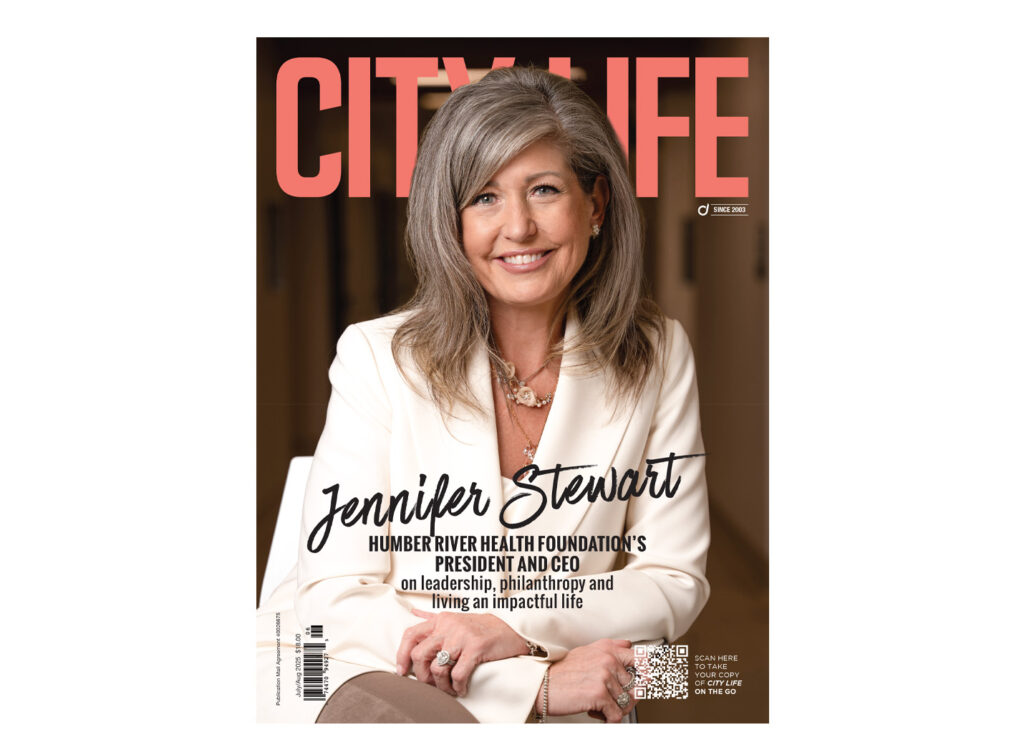








































































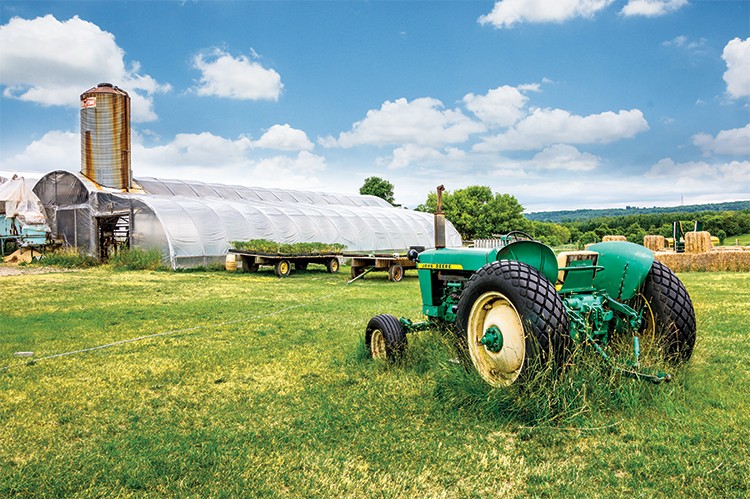
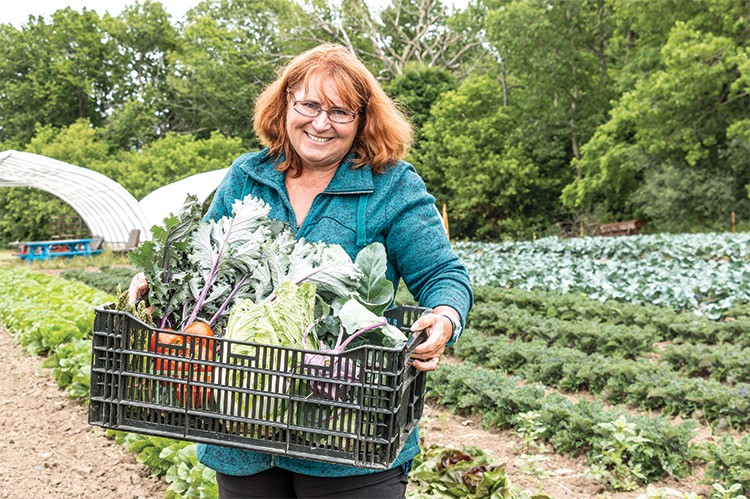
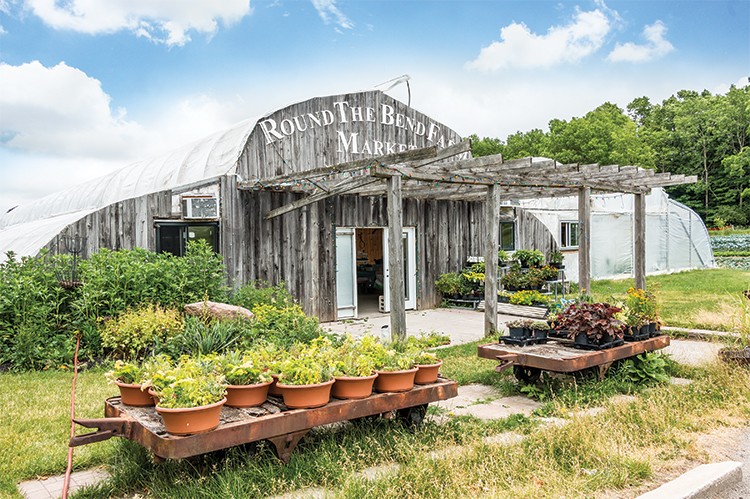
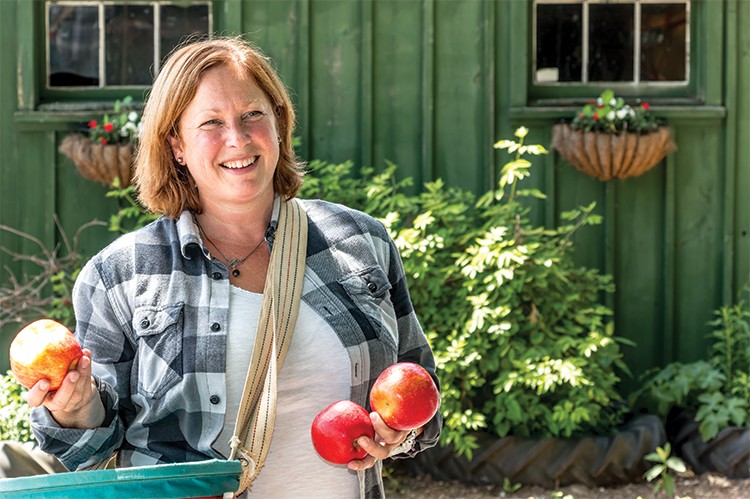
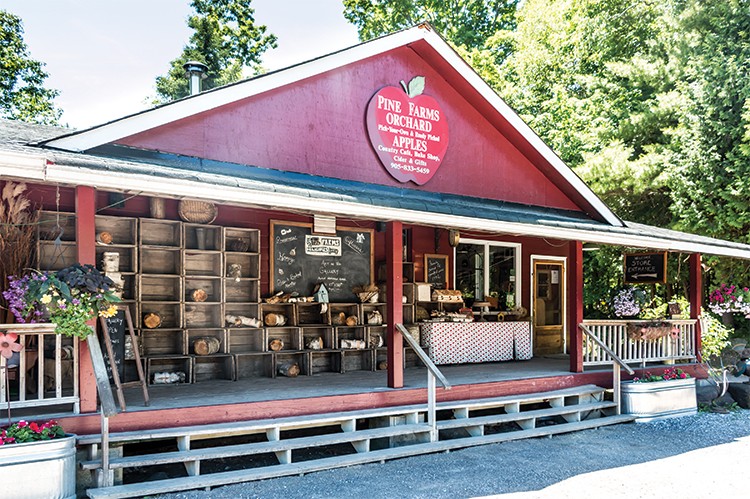
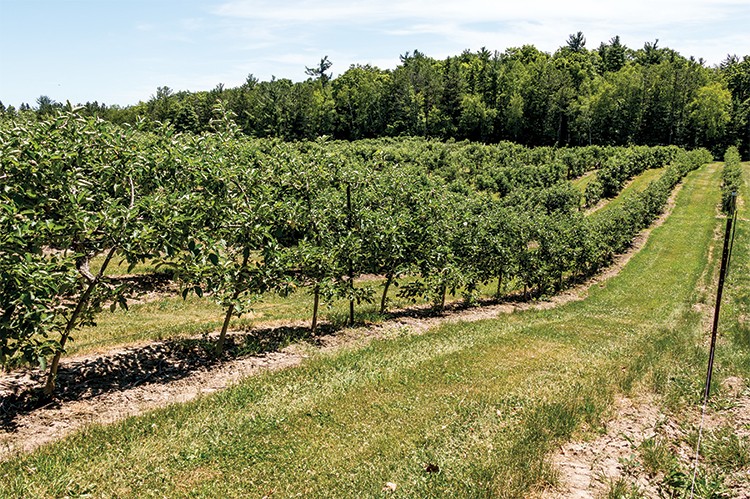
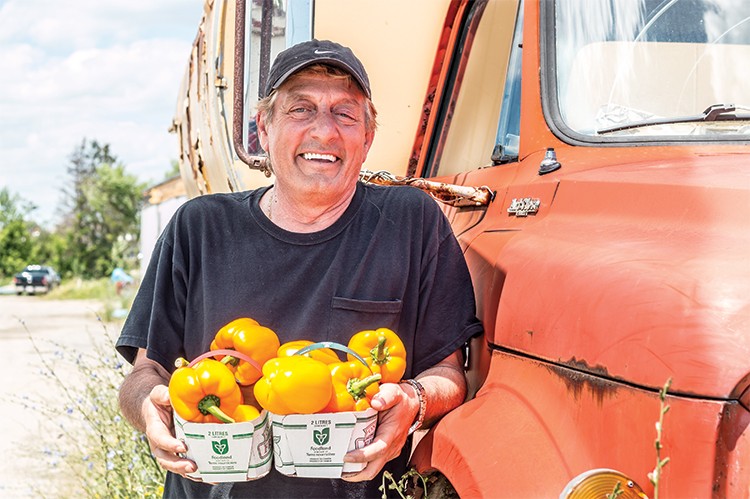
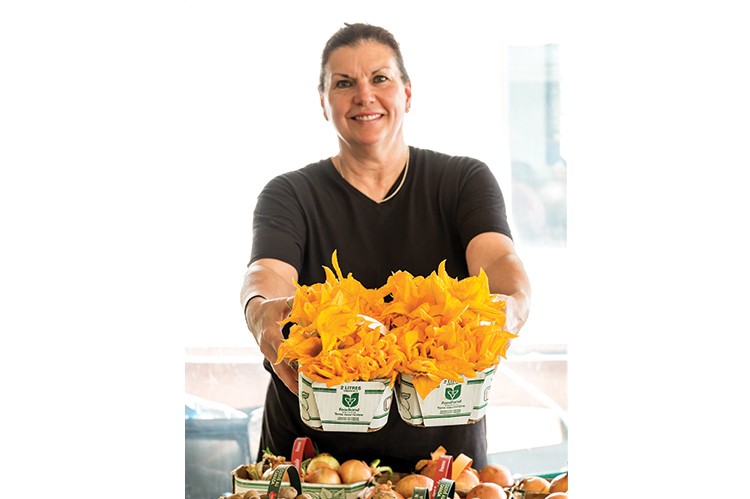
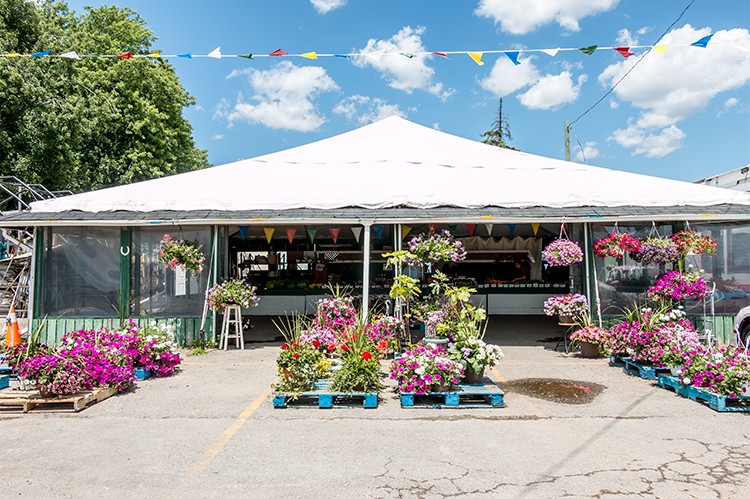
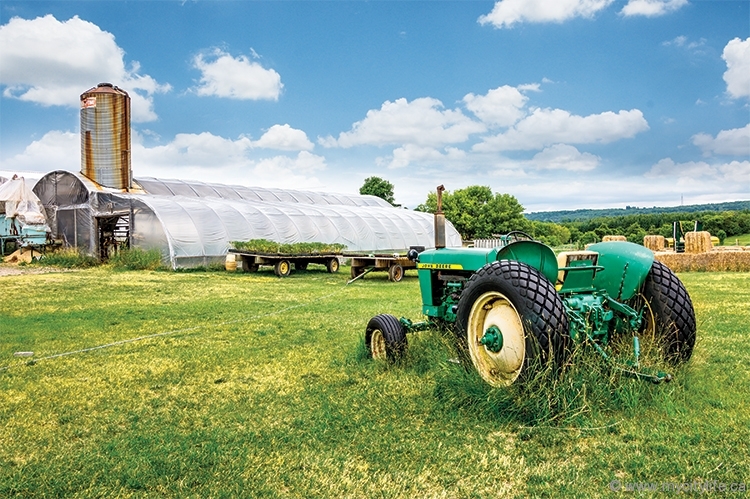






No Comment